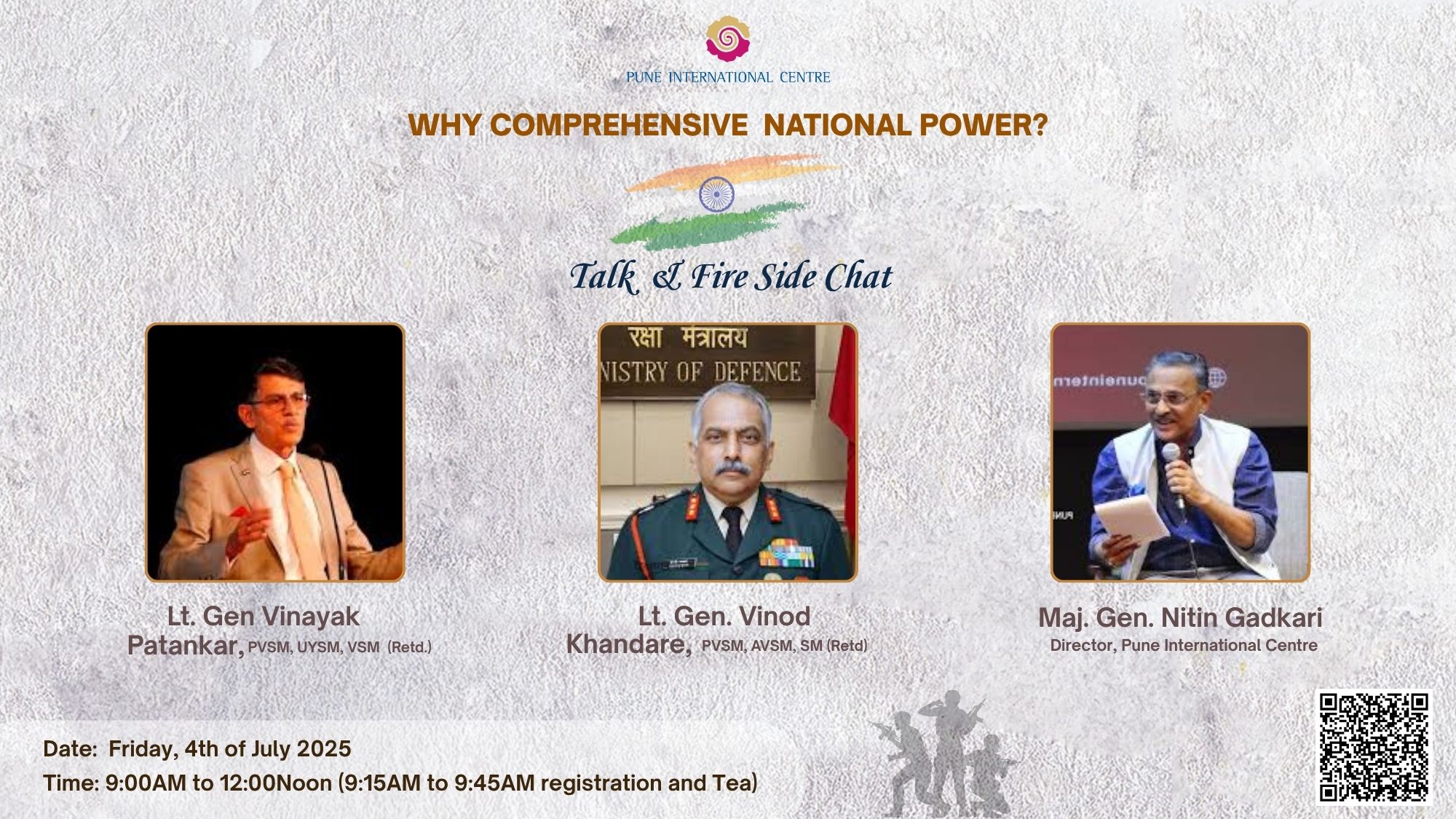If Indian women were part of the labour force as much as men are, we would have over 200 million extra workers. This shift would help the economy grow by 27 percent, indicate estimates. But over three out of four women above 15 in India are neither working nor seeking work. This leaves us with one of the world’s largest untapped worker populations, an issue that calls for deliberations on strategising change, especially so in these unprecedented times when a pandemic is driving us to re-evaluate our priorities and practices.
To discuss the challenges and mitigating strategies, Pune International Centre along with Gokhale Institute of Politics and Economics, India Development Foundation (IDF) and the University of Mumbai, hosted a two-day national conference on ‘Women@Work’.
Prof. Pradeep Apte was the convener and Dr. Vijay Kelkar was the chairman of the conference. In the inaugural session, Mr. Mahesh Vyas, Director, Centre for Monitoring Indian Economy (CMIE) delivered the first talk followed by Ms. Ravinder Kaur, Professor of Sociology and Social Anthropology, Department of Humanities and Social Sciences, IIT Delhi. Prof. Kaur spoke on sociological issues that confront women’s workforce participation.
In the first session, Prof. Amaresh Dubey, Centre for the Study of Regional Development, School of Social Sciences, Jawaharlal Nehru University, presented his views on ‘Is the changing occupational structure affecting female labour force participation?’
Mr. A. Sirja, Economic Advisor, MEA and Mr. Shrinivas Shirke, Assistant Director, National Statistical Office, discussed causes of the decline in rural female labour force participation in India.
In the panel discussion, Meena Gopal, Chairperson, Advanced Centre for Women’s Studies, TISS, Seema Kulkarni, National Facilitation Team Member, MAKAAM and Senior Fellow, SOPPECOM and Nilanjana Sengupta, Technical Specialist II, ICRW expressed their views on challenges faced by women at work and policies to address these challenges. The session was chaired by Dr. Rajani Gupte, Vice Chancellor, SIU.
On the second day, Ms. Soma Wadhwa, Research Fellow, IDF, presented a case study, ‘Barriers women face in connecting with income opportunities and strategies to enable them to overcome.’ Ms. Anuradha Nair from UNICEF talked on ‘A Gender Budget analysis of Maharashtra.’
The first session was chaired by Ms. Vibhuti Patel, Trustee, Women’s Research and Action Trust along with Ms. Subhalakshmi Nandi, Senior Program Officer (Gender Equality), Bill and Melinda Gates Foundation, Ms. Sejal Dand, Founder and Executive Director, ANANDI – Area Networking and Development Initiatives and Ms. Suchita Krishnaprasad, Former Faculty and HoD, Economics, Elphinstone College, who took part in the discussions and expressed their views on the subject.
The second session was chaired by Prof. Shubhashis Gangopadhyay, Research Director, India Development Foundation and Dean, Indian School of Public Policy along with Dr. Vijay Kelkar, Vice President, PIC and panelists including Ms. Chetna Gala Sinha, Founder, Mann Deshi Bank, Dr. Pradeep Apte, Professor Emeritus, Savitribai Phule Pune University, Dr. Sangeeta Shroff, Director, Agro-economic Research Centre for Maharashtra, Gokhale Institute of Politics and Economics and Dr. Jayanti Kajale, Dean, Academic Outreach Activities, Gokhale Institute of Politics and Economics took part in the discussions.
PIC along with other partner organisations will come up with a policy paper soon on this subject which will be submitted to the relevant departments in the ministry.




